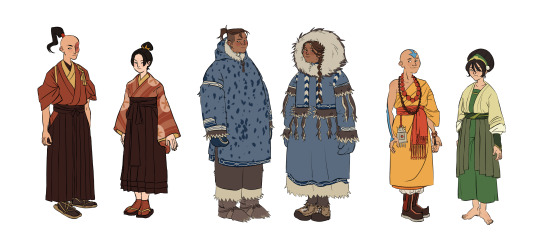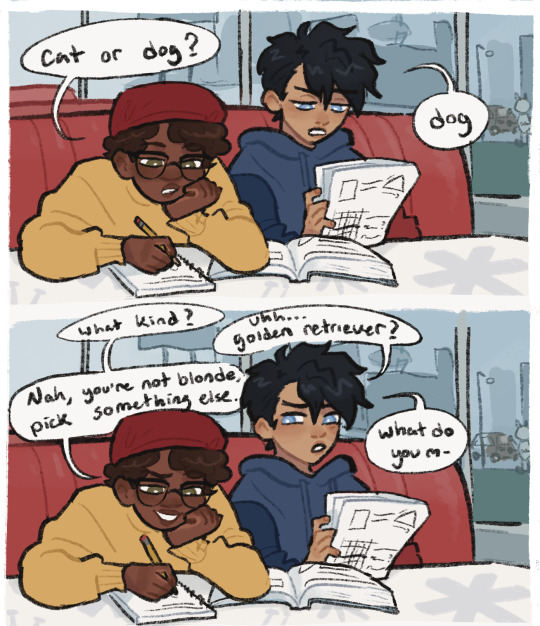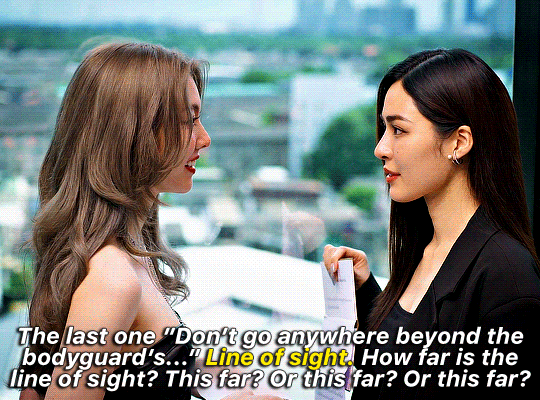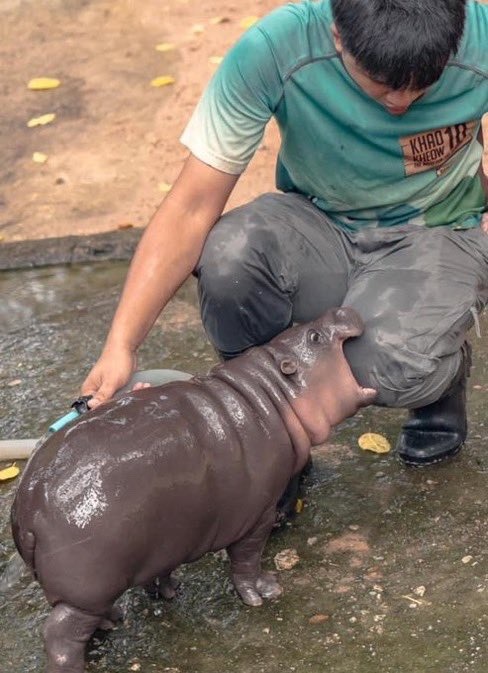#and thai
Text
Similar to my last post about Spanish or Portuguese , this is how to tell the difference between chinese and Japanese, because of just how similar they look! (Keep in mind I'm only studying Japanese and don't know ANY Chinese, so some of this may be off! SORRYYY!!!)
GENERAL HISTORY AND BACKGROUND:
One of the big things that makes Japanese and Chinese writing so similar is that Japanese takes many words from Chinese and puts them into in the Kanji writing system, which has over 50,000 separate characters, although the average native japanese speaker knows between 1500 and 2500. Along with hiragana, which is used for words in/from Japan. Then theres katakana which is used for foreign words, (like names and foods) and each writing system is used interchangeably and can be mixed up even in the same sentence! (Its REALLY confusing)
In Japanese too (but not for foreign words) each word can have 1 or 2 translations, either in hiragana or kanji. All Kanji does to a word is turns it into a more complicated, but more comprehensive version to make it more recognizable and faster to read. (SO CONFUSING)
For example, the word for cat in hiragana is ねこ, (pronounced Ne-ko) while in kanji it would be 猫 (also pronounced Ne-ko!). They're pronounced the exact same, but written differently.
a good example of this would be numbers! The translation to japanese would be either いち (hiragana) or 一 (kanji) both the hiragana and kanji pronunciation would be the same, which would be I-chi. In chinese, one would also be 一, but pronounced Yī this time! same writing, different pronunciations!
Although, not all Japanese words have Kanji set to them. So to fill in the gaps, they have to use the other writing systems like Katakana and Hiragana. Every sentence can be written multiple ways!
VISUAL DIFFERENCES AND.. NOT HISTORY:
So, lets say I wanted to translate "My brother Oliver is from the united states" into both Japanese and Chinese. In japanese, words like oliver and United states would be translated into katakana since they are foreign words. while in chinese they would find the closest character to match the sound.
In japanese, quotation marks are represented with 「 and 」 , while in chinese its still " and "!
Keep in mind that compared to kanji, katakana and hiragana are much simpler!
(im taking these translations from google so take the writing with a grain of salt!!)
so, in katakana, oliver = オリバー and united states = アメリカ . these translations basically sound out the words, so if you were saying it it would sound pretty close to english! (O-ri-ba, and a-me-ri-ka)
the direct translation to japanese would be 私の弟のオリバーはアメリカ出身です. pay attention to the complexity of each symbol and now look over at the chinese translation, which would be 我的兄弟奥利弗来自美国. the characters are MUCH more complicated! To make up for that, sentences in japanese are more likely to be longer length wise because of the breaking up of the words (but not always!)
So, lets try with a couple more examples! make sure to be looking at the characters and the complexity of each of them!
Sentence: I need to go to the convenience store
Japanese: コンビニに行かなければなりません
Chinese: 我要去便利店
Sentence: Which curtain should we get?
Japanese:どのカーテンを買おうか?
Chinese: 我们应该买哪种窗帘?
Sentence: Can I get another chip?
Japanese: 別のチップを入手できますか?
Chinese:我可以再买一个芯片吗?
Sentence: I was responsible for what happened to John F. Kennedy
Japanese: ジョン・F・ケネディに起こったことの責任は私にあった
Chinese: 我对约翰·F·肯尼迪的遭遇负有责任
Sentence: I like to play video games in my free time
Japanese: 私は自由時間にビデオゲームをするのが好きです
Chinese: 我喜欢在空闲时间玩电子游戏
Sentence: He asked me, "Can I pet that cat over there?"
Japanese: 彼は私に「あそこの猫を撫でてもいいですか?」と尋ねました。
Chinese: 他问我:“我可以摸摸那边的猫吗?”
Many things i have said in this could be wrong, so feel free to correct me! I just am tired of people mixing up these languages and these are some of the things that I have learned (other than knowing some japanese lmfao) have fun in whatever you choose to do with this!!
#japanese#chinese#languages#.. geoguessr tips#might make another version of this but with korean#and thai#once you get the hang of this it gets super easy#ANWAYS#hiro.txt#language
17 notes
·
View notes
Text




H E L L O ????
70K notes
·
View notes
Text


my design of Thai Miku
27K notes
·
View notes
Text
A sweet interaction today--an elderly Thai man held the elevator for me when I got off the Skytrain. As we rode down, he asked in English where I was from and if I'd come to Thailand alone, so I replied in Thai that I had moved here with my wife, who is Thai. He assumed I had used the wrong word for spouse and tried to helpfully correct my Thai, so I explained that we are lesbians and his eyes lit up, he shook my hand excitedly and said "Oh!! Oh congratulations!!" 🥹😭💗🏳��🌈
#thailand#lgbtqia#i was congratulated for being a lesbian today y'all#it was so wholesome#i love Thai people
30K notes
·
View notes
Text

#minecraft#minecraft movie#minecraft the movie#wtf was thay#tgat#that#like what#huh#im in shambles#wtf#wtf wtf
11K notes
·
View notes
Text

Learning to eat with your hands.
#dungeon meshi#delicious in dungeon#dunmeshi#kabru#kabru of utaya#kabru dungeon meshi#laios touden#laios dungeon meshi#art#labru#not rlly#whatever#toshiro dungeon meshi#HES THERE FOR 1 PANEL#kabru the “eat rice w hands” asian and toshiro “eat with chopsticks” asian#and laios our local white dude#aweeesommmeee#okonomiaki trio#I THINK? THAYS WHAY THEYRE CALLED?#comic practice kinda. i just wanted to f around#idfk where they could be eating#this was inspired by smth irl actually.#but it was a budol fight so ion think it matches here#and yes this is how you eat rice with your hands. you look weird if you do it any other way#weird not in an ugly way but in a “you will lick and suck your fingers on the dinner table weird”#update:my dad disproved this comi bc kabrus palm touched the rice in the 3rd panel. im a disgrace.
9K notes
·
View notes
Text








Celebrations marking the beginning of marriage equality in Thailand are underway at the Government House.
Source: Thai Enquirer
[Image descriptions: 1. A pride march. The people marching wear rainbow sashes and carry rainbow flags, some with Thai writing on them. The onlookers hold mini rainbow flags and other signs as they watch.
2. A person in a rainbow coat holds up a sign that says, ‘สมรส เท่าเทียม ผ่าน แล้ว’ [marriage equality passed]
3. A float showing people in rainbow clothing and sashes waving rainbow flags.
4. A sapphic couple rides an open wagon in a parade.
5. A man holds up a certificate in front of a progress pride flag with a Thai queer organisation’s logo on it.
6. A gay couple pose next to each other while waving progress pride flags. A large flag held by someone else frames the two from the left.
7. A group of marchers with rainbow flags and sashes.
8. A gay couple in white suits pose in front of a rainbow flag and their marriage certificates. The Government House is visible in the background. \End descriptions]
(a big thank you to @a-captions-blog for the image descriptions)
#thailand#thai politics#marriage equality#marriage equality thailand#queer stuff#lgbtqia#do i spy porsch and arm#pictures of happy older queer folk gets me like nothing else does#oh i'm so happy today
12K notes
·
View notes
Text

just some designs mainly created because I wanted to draw hakama and then it spiral out from there
bald zuko under the cute

#avatar the last airbender#atla redesigns#atla#atla fanart#atla zuko#atla azula#atla sokka#atla katara#atla aang#avatar aang#toph beifong#my art#I also have some wip designs for summer clothes for most of them and before anyone says anything for the fire nation theyre thai inspired#doing research for this spiraled into reading 3 fairly big books in the span of 2 weeks just cause#i ALSO have adult designs cooking#this was really inspired by all the girls on campus in their hakama a few weeks ago...wahhh so pretty
8K notes
·
View notes
Text

(Source)
THE MARRIAGE EQUALITY BILL HAS PASSED IN THAILAND.
It will be published in Thailand’s Royal Gazette for 120 days and become law.
HAPPY PRIDE TO THAILAND!!!!!!! 🏳️🌈
#marriage equality#marriage equality in thailand#thai marriage equality#pride month#pride#lgbtq+#lgbtq+ rights
6K notes
·
View notes
Text
Red Lobster was killed by private equity, not Endless Shrimp

For the rest of May, my bestselling solarpunk utopian novel THE LOST CAUSE (2023) is available as a $2.99, DRM-free ebook!

A decade ago, a hedge fund had an improbable viral comedy hit: a 294-page slide deck explaining why Olive Garden was going out of business, blaming the failure on too many breadsticks and insufficiently salted pasta-water:
https://www.sec.gov/Archives/edgar/data/940944/000092189514002031/ex991dfan14a06297125_091114.pdf
Everyone loved this story. As David Dayen wrote for Salon, it let readers "mock that silly chain restaurant they remember from their childhoods in the suburbs" and laugh at "the silly hedge fund that took the time to write the world’s worst review":
https://www.salon.com/2014/09/17/the_real_olive_garden_scandal_why_greedy_hedge_funders_suddenly_care_so_much_about_breadsticks/
But – as Dayen wrote at the time, the hedge fund that produced that slide deck, Starboard Value, was not motivated by dissatisfaction with bread-sticks. They were "activist investors" (finspeak for "rapacious assholes") with a giant stake in Darden Restaurants, Olive Garden's parent company. They wanted Darden to liquidate all of Olive Garden's real-estate holdings and declare a one-off dividend that would net investors a billion dollars, while literally yanking the floor out from beneath Olive Garden, converting it from owner to tenant, subject to rent-shocks and other nasty surprises.
They wanted to asset-strip the company, in other words ("asset strip" is what they call it in hedge-fund land; the mafia calls it a "bust-out," famous to anyone who watched the twenty-third episode of The Sopranos):
https://en.wikipedia.org/wiki/Bust_Out
Starboard didn't have enough money to force the sale, but they had recently engineered the CEO's ouster. The giant slide-deck making fun of Olive Garden's food was just a PR campaign to help it sell the bust-out by creating a narrative that they were being activists* to save this badly managed disaster of a restaurant chain.
*assholes
Starboard was bent on eviscerating Darden like a couple of entrail-maddened dogs in an elk carcass:
https://web.archive.org/web/20051220005944/http://alumni.media.mit.edu/~solan/dogsinelk/
They had forced Darden to sell off another of its holdings, Red Lobster, to a hedge-fund called Golden Gate Capital. Golden Gate flogged all of Red Lobster's real estate holdings for $2.1 billion the same day, then pissed it all away on dividends to its shareholders, including Starboard. The new landlords, a Real Estate Investment Trust, proceeded to charge so much for rent on those buildings Red Lobster just flogged that the company's net earnings immediately dropped by half.
Dayen ends his piece with these prophetic words:
Olive Garden and Red Lobster may not be destinations for hipster Internet journalists, and they have seen revenue declines amid stagnant middle-class wages and increased competition. But they are still profitable businesses. Thousands of Americans work there. Why should they be bled dry by predatory investors in the name of “shareholder value”? What of the value of worker productivity instead of the financial engineers?
Flash forward a decade. Today, Dayen is editor-in-chief of The American Prospect, one of the best sources of news about private equity looting in the world. Writing for the Prospect, Luke Goldstein picks up Dayen's story, ten years on:
https://prospect.org/economy/2024-05-22-raiding-red-lobster/
It's not pretty. Ten years of being bled out on rents and flipped from one hedge fund to another has killed Red Lobster. It just shuttered 50 restaurants and declared Chapter 11 bankruptcy. Ten years hasn't changed much; the same kind of snark that was deployed at the news of Olive Garden's imminent demise is now being hurled at Red Lobster.
Instead of dunking on free bread-sticks, Red Lobster's grave-dancers are jeering at "Endless Shrimp," a promotional deal that works exactly how it sounds like it would work. Endless Shrimp cost the chain $11m.
Which raises a question: why did Red Lobster make this money-losing offer? Are they just good-hearted slobs? Can't they do math?
Or, you know, was it another hedge-fund, bust-out scam?
Here's a hint. The supplier who provided Red Lobster with all that shrimp is Thai Union. Thai Union also owns Red Lobster. They bought the chain from Golden Gate Capital, last seen in 2014, holding a flash-sale on all of Red Lobster's buildings, pocketing billions, and cutting Red Lobster's earnings in half.
Red Lobster rose to success – 700 restaurants nationwide at its peak – by combining no-frills dining with powerful buying power, which it used to force discounts from seafood suppliers. In response, the seafood industry consolidated through a wave of mergers, turning into a cozy cartel that could resist the buyer power of Red Lobster and other major customers.
This was facilitated by conservation efforts that limited the total volume of biomass that fishers were allowed to extract, and allocated quotas to existing companies and individual fishermen. The costs of complying with this "catch management" system were high, punishingly so for small independents, bearably so for large conglomerates.
Competition from overseas fisheries drove consolidation further, as countries in the global south were blocked from implementing their own conservation efforts. US fisheries merged further, seeking economies of scale that would let them compete, largely by shafting fishermen and other suppliers. Today's Alaskan crab fishery is dominated by a four-company cartel; in the Pacific Northwest, most fish goes through a single intermediary, Pacific Seafood.
These dominant actors entered into illegal collusive arrangements with one another to rig their markets and further immiserate their suppliers, who filed antitrust suits accusing the companies of operating a monopsony (a market with a powerful buyer, akin to a monopoly, which is a market with a powerful seller):
https://www.classaction.org/news/pacific-seafood-under-fire-for-allegedly-fixing-prices-paid-to-dungeness-crabbers-in-pacific-northwest
Golden Gate bought Red Lobster in the midst of these fish wars, promising to right its ship. As Goldstein points out, that's the same promise they made when they bought Payless shoes, just before they destroyed the company and flogged it off to Alden Capital, the hedge fund that bought and destroyed dozens of America's most beloved newspapers:
https://pluralistic.net/2021/10/16/sociopathic-monsters/#all-the-news-thats-fit-to-print
Under Golden Gate's management, Red Lobster saw its staffing levels slashed, so diners endured longer wait times to be seated and served. Then, in 2020, they sold the company to Thai Union, the company's largest supplier (a transaction Goldstein likens to a Walmart buyout of Procter and Gamble).
Thai Union continued to bleed Red Lobster, imposing more cuts and loading it up with more debts financed by yet another private equity giant, Fortress Investment Group. That brings us to today, with Thai Union having moved a gigantic amount of its own product through a failing, debt-loaded subsidiary, even as it lobbies for deregulation of American fisheries, which would let it and its lobbying partners drain American waters of the last of its depleted fish stocks.
Dayen's 2020 must-read book Monopolized describes the way that monopolies proliferate, using the US health care industry as a case-study:
https://pluralistic.net/2021/01/29/fractal-bullshit/#dayenu
After deregulation allowed the pharma sector to consolidate, it acquired pricing power of hospitals, who found themselves gouged to the edge of bankruptcy on drug prices. Hospitals then merged into regional monopolies, which allowed them to resist pharma pricing power – and gouge health insurance companies, who saw the price of routine care explode. So the insurance companies gobbled each other up, too, leaving most of us with two or fewer choices for health insurance – even as insurance prices skyrocketed, and our benefits shrank.
Today, Americans pay more for worse healthcare, which is delivered by health workers who get paid less and work under worse conditions. That's because, lacking a regulator to consolidate patients' interests, and strong unions to consolidate workers' interests, patients and workers are easy pickings for those consolidated links in the health supply-chain.
That's a pretty good model for understanding what's happened to Red Lobster: monopoly power and monopsony power begat more monopolies and monoposonies in the supply chain. Everything that hasn't consolidated is defenseless: diners, restaurant workers, fishermen, and the environment. We're all fucked.
Decent, no-frills family restaurant are good. Great, even. I'm not the world's greatest fan of chain restaurants, but I'm also comfortably middle-class and not struggling to afford to give my family a nice night out at a place with good food, friendly staff and reasonable prices. These places are easy pickings for looters because the people who patronize them have little power in our society – and because those of us with more power are easily tricked into sneering at these places' failures as a kind of comeuppance that's all that's due to tacky joints that serve the working class.

If you'd like an essay-formatted version of this post to read or share, here's a link to it on pluralistic.net, my surveillance-free, ad-free, tracker-free blog:
https://pluralistic.net/2024/05/23/spineless/#invertebrates
#pluralistic#bust-outs#private equity#pe#red lobster#olive garden#endless shrimp#class warfare#debt#looters#thai union group#enshittification#golden gate#monopsony#darden#alden global capital#Fortress Investment Group#food#david dayen#luke goldstein
6K notes
·
View notes
Text


Theyre supposed to be doing their homework...
Tucker's doodles:

#danny phantom#tucker foley#sam manson#phanart#my art#i accidentally deleted my first take on thay second page#im still sad about it
3K notes
·
View notes
Text

what happens in the ruins stays in the ruins 🙈
#headcanon: something unspeakable happened during their joint research fieldwork and they (mostly kaveh) had to pretend to have fallen out#be it was too embarrassing lololol#myart#genshin impact#kaveh#alhaitham#haikaveh#this is actually my cover for the thai haikaveh i wrote!#it was such a fun project to do 😭
4K notes
·
View notes
Text

what happens when you change your web standards to be only english-speaker inclusive
#twitter#elon musk#twitter x#whatever shit name it has now lmao#english#as a note#twitter aint the only page doing this#there are games even that aint letting words that have -nig- inside of them be written as part of an algorithm that checks them out#-nga- and -ngr- also#and spanish and indonesian use those words a lot inside of words and/or can mean sth different in their languages (in indonesian case)#etc etc#wait i forgot if it was thai or indo#oh fuck#oh well
17K notes
·
View notes
Text















“When feelings are developing into something beyond duty...“
Only You The Series, starring Lingling Sirilak and Orm Kornnaphat coming soon
#only you#only you the series#tawanira#lingling sirilak#orm kornnaphat#lingorm#tw flashing lights#thai gl#thai drama#mygifs#mine#onlyyouedit#mjtag#userspicy#userjap#usersasa#rinblr#tusermona#raeblr#girlslovenet#wlw#lgbtq#lgbtq+#wlwgif#wlwsource#if not interested please ignore beloveds!!
2K notes
·
View notes
Text


I always wanted to touch the rainbow.
MY EX'S WEDDING (2024)
#my ex's wedding#lux sulax#prom kanchanisara#wlwedit#lgbtedit#my edits#thai gl#THAT'S SUCH A GOOD STRADDLE GIVE ME MORE PLEASE AND THANK YOU
2K notes
·
View notes
Text

Moo Deng’s caretaker (the guy in the photo) responded to a vegan, pro-Peta American TikToker — who (falsely) accused Khao Kheow zoo, the Thai zoo Moo Deng’s from, of abusing Moo Deng and other animals (when the zoo’s actual known for having been saving animals, rehabilitating them and treating them with kindness) and said that Moo Deng should be in the wild (her species, pygmy hippo, is considered endangered and therefore she could not be in the wild) — by saying that he doesn’t speak English, therefore he doesn’t know what this person is yapping about, therefore he does not care. And I honestly think he’s a legend for that.
Moo Deng is loved and is well taken care of. Her caretaker loves her and has been taking care of her since her birth, way before she’s gotten famous.
Not everything is about America and not everything needs to be “saved” by American.
3K notes
·
View notes